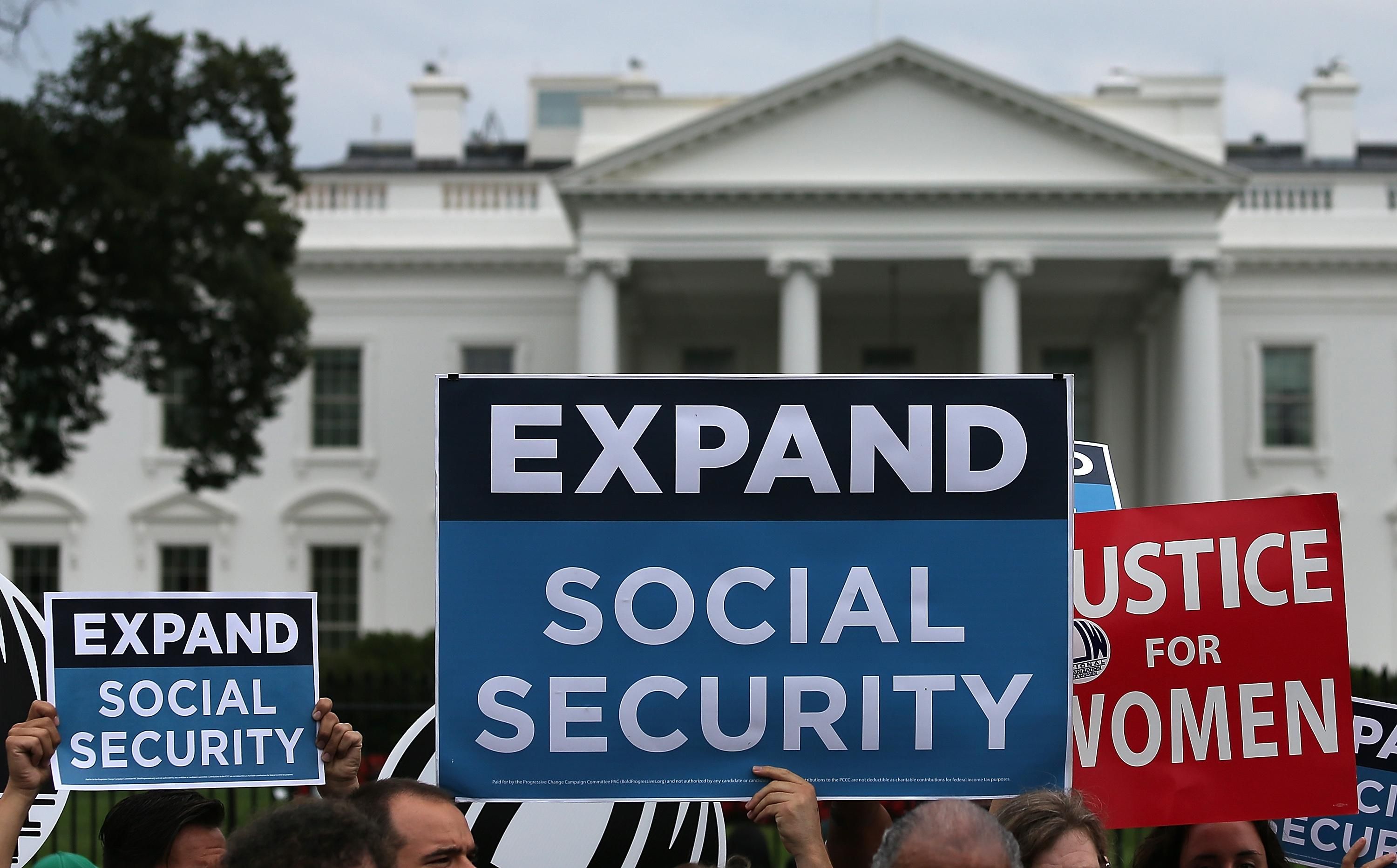
Around half of U.S. seniors living alone can't afford their basic necessities, statistics published Monday revealed, underscoring calls for legislation to expand Social Security and lower prescription drug prices.
"The biggest worry I have is not being able to afford living in my home or becoming ill. I know that medical expenses could wipe me out in no time financially."
Fifty-four percent of older U.S. women who live on their own and 45% of older men in the same situation are either impoverished by federal standards or cannot cover their necessary expenses, according to the Elder Index, a project of the Gerontology Institute at the University of Massachusetts Boston. For older couples, the figure is 24%.
"The Elder Index confirms what we already knew: The cost of living is just too high for older Americans, and their earned benefits aren't keeping pace with these costs," the Alliance for Retired Americans tweeted in response to the report.
Ramsey Alwin, president and chief executive of the National Council on Aging, told Kaiser Health News (KHN) that the group hopes to promote a robust dialogue about "the true cost of aging in America."
"There's a myth that Social Security and Medicare miraculously take care of all of people's needs in older age," said Alwin. "The reality is they don't, and far too many people are one crisis away from economic insecurity."
William Arnone, CEO of the National Academy of Social Insurance, told KHN that "the poverty rate just doesn't cut it as a realistic look at the struggles older adults are having. The Elder Index is a reality check."
KHN interviewed Fran Seeley, an 81-year-old retired schoolteacher in Portland, Maine whose monthly income consists of $925 in Social Security payments, $287 from an individual retirement account, and $400 from a reverse mortgage. Seeley's annual income of $19,300 falls well below the $22,560 the index deems necessary for an older adult in excellent health living in a home they own with no mortgage payments.
With high inflation straining her budget even further, Seeley said that "I have to cut back in any way I can."
"The biggest worry I have is not being able to afford living in my home or becoming ill," she told KHN. "I know that medical expenses could wipe me out in no time financially."
The Equity in Aging Collaborative—a new initiative by 25 advocacy groups seeking "to address issues of poverty among older adults who have and continue to face inequities across their lifetimes"—is planning to use the index to influence lawmakers to enact laws and policies that ease the financial burden of aging.
Introduced last October by Rep. John B. Larson (D-Conn.), H.R. 5723—the Social Security 2100: A Sacred Trust—would, if passed as written, increase program benefits, protect against inflation, end the five-month waiting period for disability benefits, strengthen the Social Security trust funds, and implement other measures.
Meanwhile, the pharmaceutical industry is fighting to torpedo Senate Democrats' modest proposal to reduce prescription drug prices by requiring Medicare to directly negotiate the prices of a limited number of medications.
Surveys have shown that expanding Social Security and allowing Medicare to negotiate drug prices are overwhelmingly popular with voters. According to recent Data for Progress polling, 76% of all likely U.S. voters support the former policy, while 83% back the latter.
This content originally appeared on Common Dreams - Breaking News & Views for the Progressive Community and was authored by Brett Wilkins.